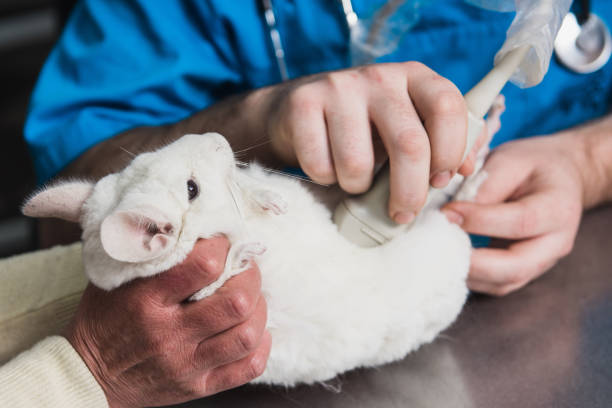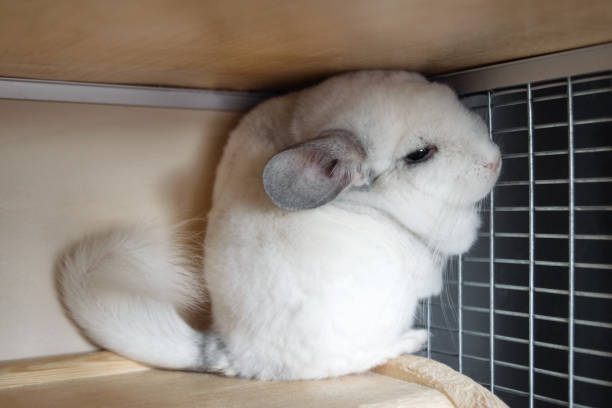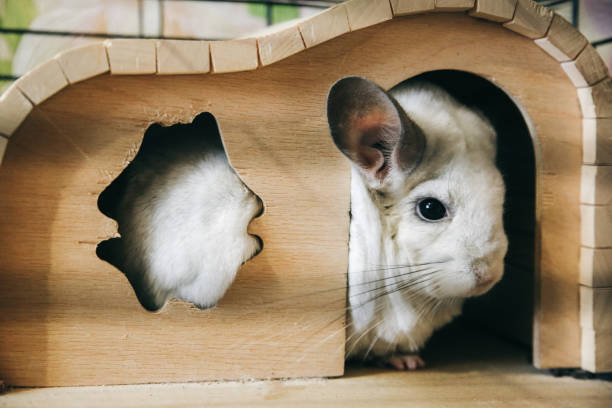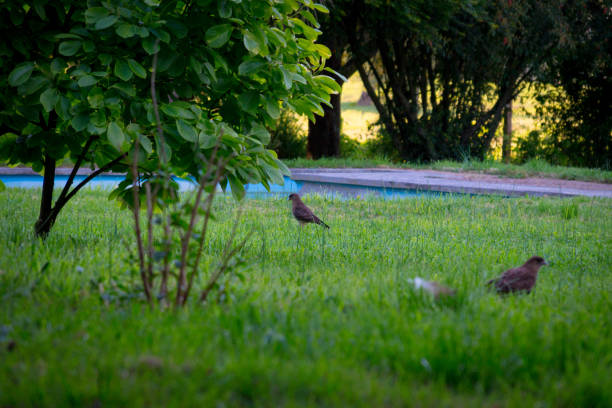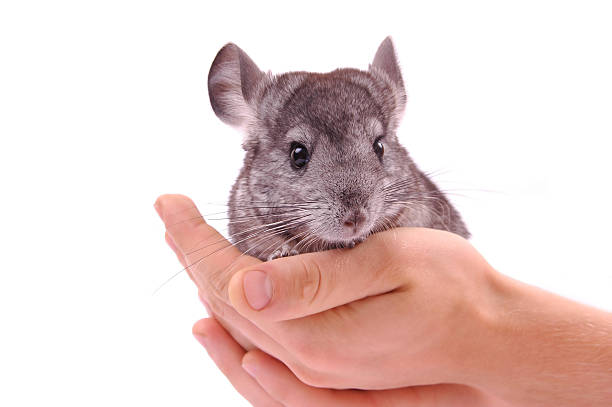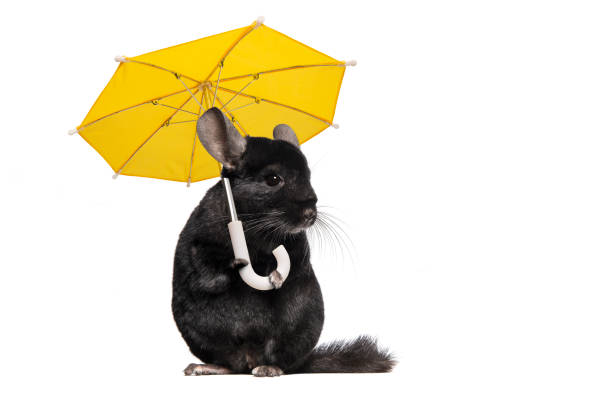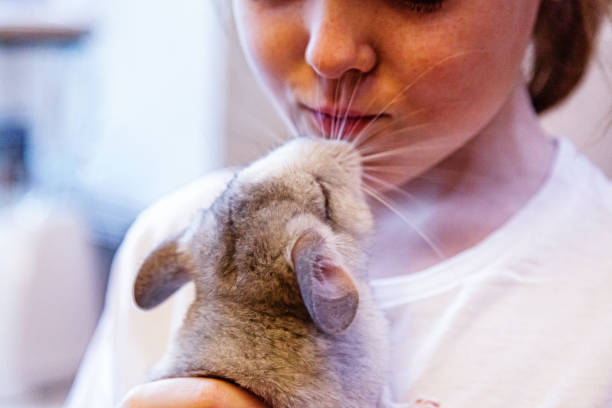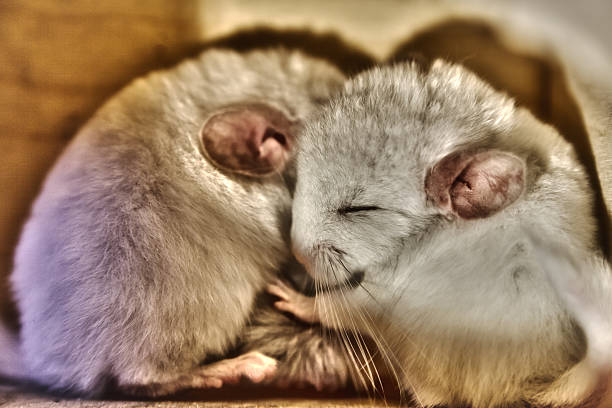Chinchilla Care: Keeping Your Furry Friend Happy and Healthy
This post contains affiliate links. This means I will make a commission at no extra cost to you should you click through and make a purchase. Read the full disclosure here.Owning a chinchilla can be a delightful experience, as these furry creatures make wonderful pets. However, proper chinchilla care is essential to ensure their well-being and happiness. In this guide, we will cover everything you need to know about providing the best care for your chinchilla, from creating a suitable habitat to maintaining their health and happiness.
1. Choosing the Right Cage
A spacious and well-ventilated cage is crucial for your chinchilla’s comfort. Opt for a multi-level cage to provide ample room for jumping and climbing, and ensure the spacing between the bars is narrow to prevent any escapes.
2. The Ideal Location
Place the chinchilla cage in a quiet area of your home, away from direct sunlight and drafts. Chinchillas are sensitive to temperature changes, so maintaining a stable environment is essential.
3. Proper Bedding and Nesting Materials
Line the cage with safe bedding material such as aspen shavings or paper-based bedding. Provide nesting boxes filled with soft hay to give your chinchilla a cozy space to rest.
4. Nutritious Diet and Feeding Schedule
A balanced diet is crucial for chinchilla health. Offer high-quality chinchilla pellets, fresh hay, and limited treats like dried fruits. Stick to a consistent feeding schedule to avoid overfeeding.
5. Water: A Vital Necessity
Fresh, clean water should always be available to your chinchilla. Use a water bottle with a sipper tube to keep the water free from contamination.
6. Chinchilla Grooming Tips
Chinchillas groom themselves, but they may need your help in removing excess fur during shedding seasons. Use a gentle brush to aid in this process.
7. Exercise and Playtime
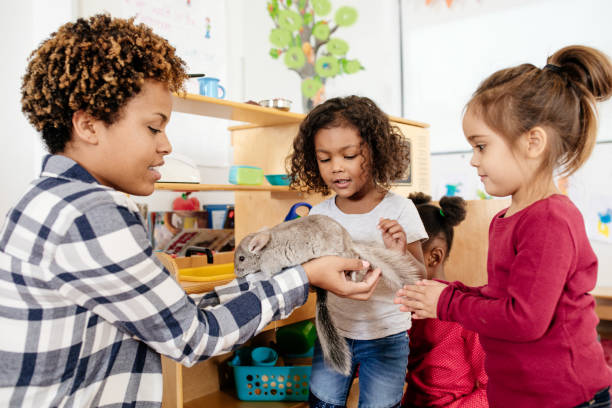
Chinchillas are active animals and need regular exercise outside of their cage. Allow supervised playtime in a safe, chinchilla-proofed area.
8. Handling and Socialization
Handle your chinchilla gently and regularly to build a bond. Remember, they are delicate creatures, so support their body properly during handling.
9. Recognizing Common Health Issues
Be vigilant about signs of illness, such as loss of appetite or lethargy. If you notice any concerning symptoms, consult a veterinarian specializing in exotic pets.
10. Regular Veterinary Check-ups
Schedule routine check-ups to ensure your chinchilla is in good health and to catch any potential issues early on.
11. Dealing with Chinchilla Behavior
Understanding your chinchilla’s behavior can help you address any concerns effectively. Watch for signs of stress or anxiety.
12. Toys and Enrichment Activities
Keep your chinchilla mentally stimulated with various toys and activities, such as chew toys and climbing structures.
13. Traveling with Your Chinchilla
If you need to travel with your chinchilla, plan ahead and create a comfortable travel enclosure. Avoid exposing them to extreme temperatures during the journey.
14. Chinchilla Breeding Considerations
Breeding chinchillas requires careful planning and knowledge. If you decide to breed, ensure you are prepared to care for the offspring responsibly.
Conclusion
Chinchillas make charming and affectionate pets when provided with the right care and attention. By creating a suitable habitat, providing a nutritious diet, and offering regular exercise and grooming, you can ensure your chinchilla leads a happy and healthy life.
FAQs
Can I house multiple chinchillas together?
While chinchillas are social animals, they can be territorial. It’s best to introduce them gradually and monitor their interactions.
How often should I clean the chinchilla cage?
Clean the cage at least once a week, and spot-clean daily to maintain a hygienic environment.
Are chinchillas suitable for children?
Chinchillas require gentle handling and care, so they may not be the best choice for very young children.
What temperature is safe for chinchillas?
Chinchillas are comfortable in temperatures between 60°F and 70°F (15°C – 24°C).
Can I bathe my chinchilla?
Chinchillas should not be bathed in water. They take dust baths to keep their fur clean and healthy.

